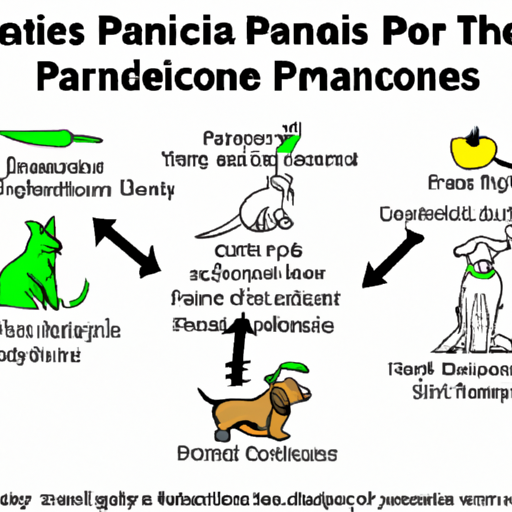As a loving and dedicated caregiver, the health of your dog is undoubtedly one of your top priorities. Despite your best efforts, however, there are some risks that may not be immediately apparent. One such threat is pancreatitis, a disease often triggered by toxins. Understanding the potential causes and symptoms can help you prevent the disease and keep your beloved pet healthy.
What is Pancreatitis?
Pancreatitis in dogs is an inflammation of the pancreas. This vital organ plays a crucial role in digestion and the regulation of blood sugar levels. When it becomes inflamed, it can cause a variety of symptoms, including vomiting, abdominal pain, and fever. The condition can be acute (sudden and severe) or chronic (long-term), and both forms can have serious consequences if not treated promptly.
Understanding The Role of Toxins in Pancreatitis
Toxins that can lead to pancreatitis come from a variety of sources. As a caregiver, being aware of these potential hazards is key to ensuring your dog’s health. Here are some common toxins that can cause pancreatitis in dogs:
- Drugs and Medications: Some medications, such as corticosteroids and certain chemotherapy drugs, can increase the risk of pancreatitis. Always consult with your vet about potential side effects before administering any new medication to your pet.
- Pesticides and Herbicides: Exposure to pesticides and herbicides, either through ingestion or skin contact, can also lead to pancreatitis. Be cautious about where your dog roams, especially if you live in an area where these chemicals are commonly used.
- Household Chemicals: Common household chemicals, such as cleaning agents or antifreeze, can be toxic to dogs and can induce pancreatitis if ingested. Keep these substances out of reach and ensure your dog does not have access to areas where these chemicals are stored or used.
Preventing Exposure to Toxins
To reduce your dog’s risk of developing pancreatitis, take proactive steps to limit their exposure to these toxins:
- Store all drugs and medications out of your dog’s reach.
- Choose pet-friendly pesticides and herbicides, or better yet, opt for natural alternatives.
- Keep your dog away from areas where household chemicals are stored or used.
Recognizing the Symptoms of Pancreatitis
Early recognition of pancreatitis symptoms can lead to quicker treatment, increasing the chances of recovery. Symptoms of pancreatitis in dogs can include:
- Loss of appetite
- Vomiting or diarrhea
- Abdominal pain
- Lethargy or depression
- Fever
If you notice any of these symptoms in your dog, contact your vet immediately.
Frequently Asked Questions
Q: What should I do if I suspect my dog has ingested a toxin?
A: If you think your dog has ingested a toxin, contact your vet or an emergency animal clinic immediately.
Q: Can diet play a role in pancreatitis?
A: Yes, a high-fat diet can increase the risk of pancreatitis. Consult with your vet about the best diet for your dog.
Q: Can pancreatitis be cured?
A: While there is no cure for pancreatitis, the condition can be managed with proper care and treatment.
Remember, as a caregiver, you play a crucial role in your pet’s health. By understanding the potential toxins that can cause pancreatitis and taking steps to prevent exposure, you can help ensure your dog leads a happy and healthy life.



